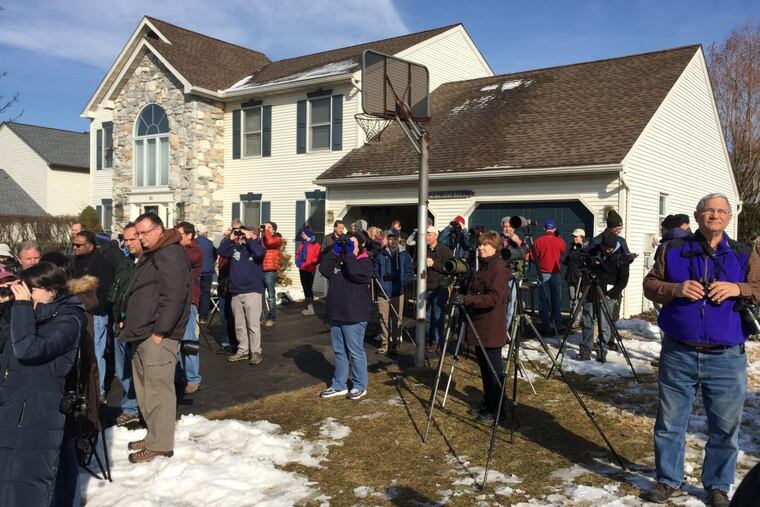How one wayward Mexican bird in Berks County boosted the economy
A study found that 1,824 people from 35 states, plus the United Kingdom and Canada, came to Lower Heidelberg Township, Berks County for a few months earlier this year to catch a glimpse of one small bird from Central Mexico that shouldn't have been there.

One man, when he heard about the wayward bird, dropped everything and drove straight through from Nebraska.
All told, 1,824 people from 35 states, plus the United Kingdom and Canada, came to Lower Heidelberg Township, Berks County, for a few months earlier this year to catch a glimpse of the black-backed oriole from central Mexico that shouldn't have been there. Not a few members of the species. Just one black-backed oriole.
Most of these people stood in Tom Binder's driveway in a sprawling development where all the streets are named after Monopoly properties.
"People really went nuts over this bird," Binder said this week.
BB — a bird with a nickname and a Facebook page — generated $223,000, "or about $3,000 per day over 67 days," in global spending, according to a study released last month by the University of New South Wales in Australia.
"I've always wondered how much money is generated by this unique and unpredictable part of birding — vagrant bird chasing — given the number of people who sometimes travel long distances to see an individual bird outside its normal range," said Corey Callaghan, the study's author and a Ph.D. candidate at the school.
"This was a rare opportunity to find out, and our study reveals just how much people are prepared to pay. There are dozens of similar events around the world each year."
People booked flights, frantically, and hotels. They bought coffee at Sheetz.
The oriole arrived in a bird feeder on Indiana Avenue on Jan. 26. The owner didn't recognize the species, took a picture, and sent it off to a friend familiar with ornithology. Soon, the word spread and the crowds came. The black-backed oriole had only been seen once before in the United States, in San Diego, but it was deemed to be an escapee.
"There's still some doubts about where this bird came from," Binder said.
There was a sighting of a black-backed oriole in Massachusetts in May, Binder said, and some people believe it could have been BB.
Not the get-off-my-lawn type, Binder embraced the birders and had them sign a log. That's how Callaghan got his data set.
"There were times when we had 50 to 75 people here, most of them with cameras and high-powered binoculars," Binder said.
Sometimes, when BB made an appearance, the crowd erupted into cheers.
Binder just dropped $1,000 on binoculars for an epic RV trip across America.
"I pay more attention to birds now than I used to," he said.
No one knew why BB flew in, or why BB left. Indiana Avenue just went with it, and a community of diehards found a small joy watching this bird flutter around the burbs before checking it off their list.
"He mostly ate orange slices, raw peanuts and orange marmalade," Binder said. "He loved red grapes."